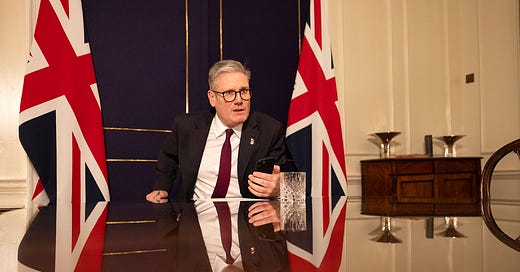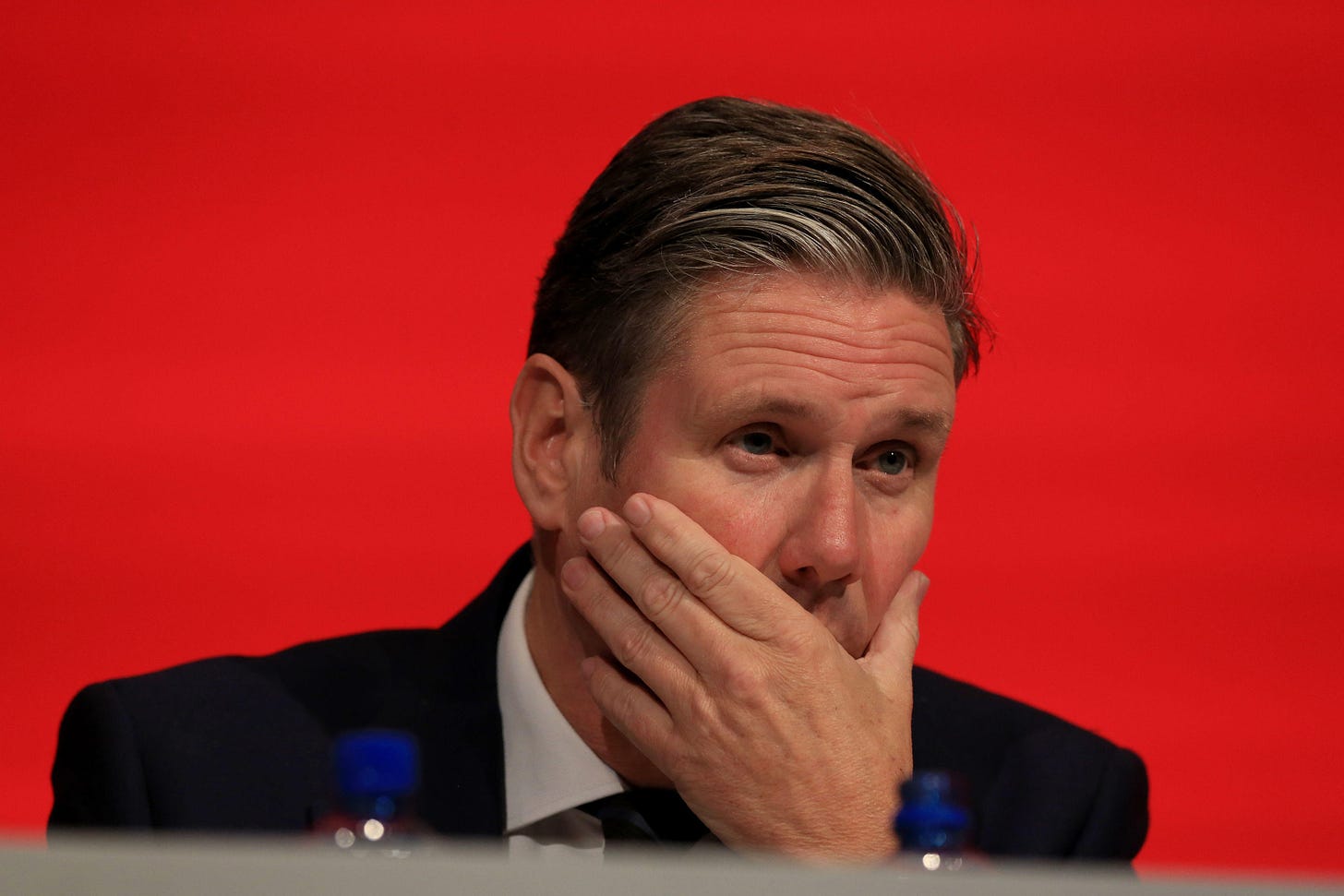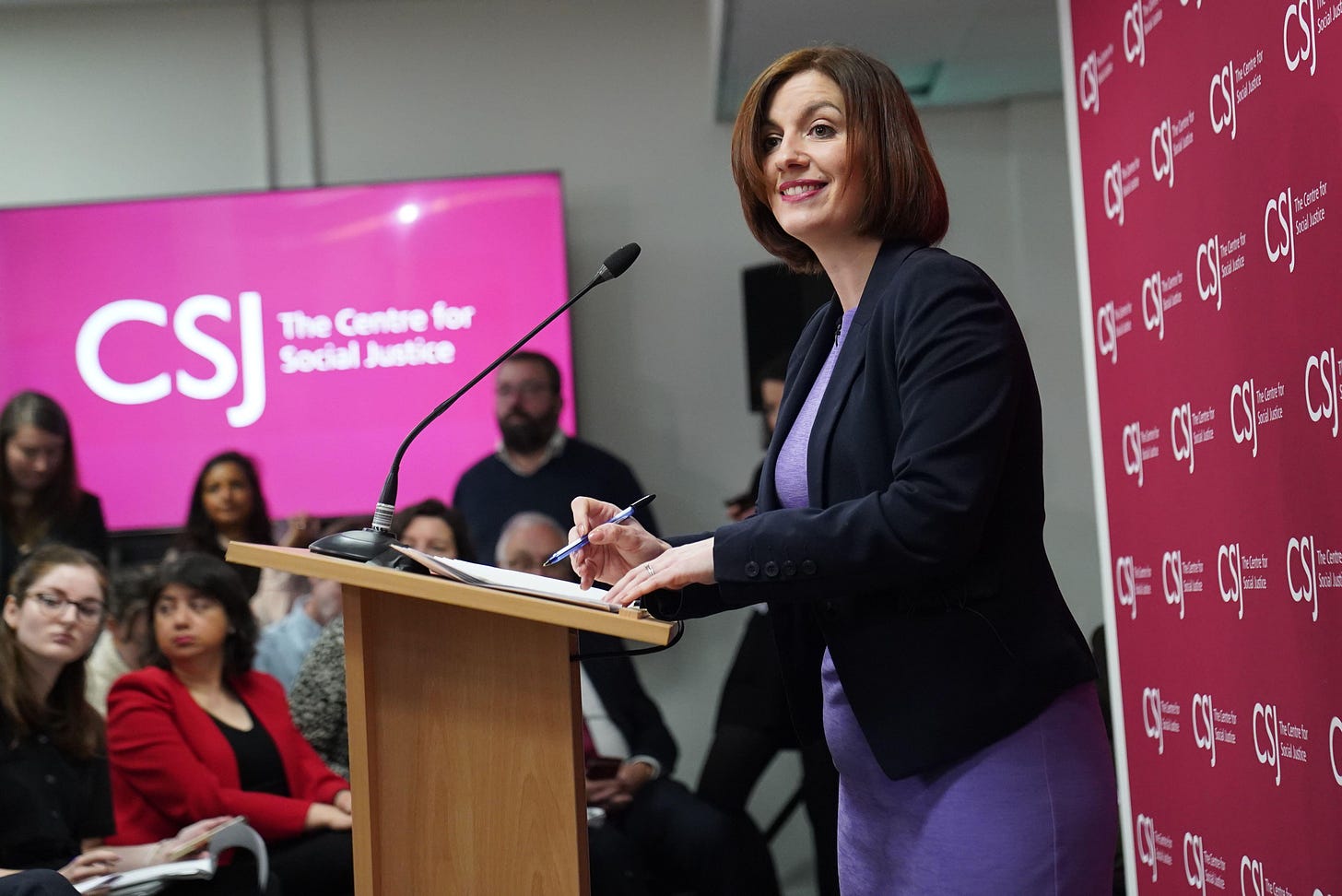Israel, Net Zero - Already Trump is making it tougher for Starmer
Can anything be done to bridge the seemingly insurmountable divide?
Downing Street’s seemingly innocuous announcement that “the UK will always comply with its legal obligations as set out by international law”, has ignited a firestorm as – in this context – it implies that Israel’s PM Benjamin Netanyahu would be subject to arrest upon a visit to Britain.
The democratic world has divided following the International Criminal Court’s issuance yesterday of formal arrest warrants for Netanyahu and his former defence secretary Yoav Gallant. While Starmer has chosen to side with the ICC’s judgement and allies such as Canada’s Justin Trudeau and Ireland’s Simon Harris, likeminded heads of state either avoided a verdict or denounced the warrants wholeheartedly. A spokesman for the German government said: “I find it hard to imagine that we would make arrests on this basis”. While Emannuel Macron and Giorgia Meloni joined with evasive answers, signalling they will “examine” the implications of the court’s ruling.
Hungary’s Victor Orbán, on the other hand, decried the ruling as "outrageously impudent” and invited the Israeli PM to his nation. Joe Biden issued a similar declaration, lambasting the arrest warrants as “outrageous”.
No one opinion is as consequential in this regard as that of President-Elect Trump’s. Yet to make a statement himself, the Donald’s chosen national security advisor Mike Waltz emphatically rejected the decision and threatened retribution, saying, “The ICC has no credibility. Israel has lawfully defended its people and borders from genocidal terrorists. You can expect a strong response to the antisemitic bias of the ICC & UN come January.” Various other Trump allies joined the chorus, calling for sanctions on the ICC and its head prosecutor Karim Khan.
Aside from the major policy divergence on Israel, the ICC split between Starmer and Trump shows the “special relationship” is bound for strife. Lawyer Keir remains an aficionado of “international law” and the institutions representing it, while Trump detests all things smelling of globalism and has undermined world institutions on a number of occasions. Trump would never let international lawyers dictate who he supports or who he doesn’t.
Chief among the irreconcilable differences is net zero. Starmer has aligned with the green bureaucracy of the EU in pledging this week to slash UK emissions – whatever the cost – by 81 per cent before 2035. The message was dripping in irony of course, as it was delivered from the podium of a petro-state at the UN COP 29 climate summit in Azerbaijan.
Trump, on the other hand, does not believe in climate science in the slightest, vowing to “drill, baby, drill”. His administration is already shaping up to be one of the most pro-energy, anti-regulation governments in US history as oil executives and climate change deniers are being granted top positions across the cabinet.
On an international level, Trump will certainly not yield to any globally contrived climate consensus and is poised to revoke the US’s participation in the Paris Climate Accords – again.
On foreign policy and security matters, the PM and the incoming President are equally split. Starmer has played nice with China’s Xi, seeking economic cooperation. He’s also steered well clear of the harsh tariffs on the Chinese EV industry imposed by his European and American counterparts. Trump is ready for war with China – economically at least – as he has vowed 40-60 per cent tariffs on Chinese goods. On the military side of things, Trump has stocked his cabinet full of China hawks, including figures like the aforementioned Waltz, who has committed to the military defence of Taiwan upon Beijing invasion.
The two also have radically different opinions on the defence of Ukraine and the validity of NATO, an organisation which will certainly come to be stress-tested by Trump in the coming years.
Aside from political differences, the personalities of Trump and Starmer could not be more different. The Donald has been shown to despise the formality of degree-waving liberal bureaucrats. Starmer, stiff politically-correct figure that he is, is hardly a guy one could engage in “locker room” talk with ringside at the ultimate fighting championship.
The UK government had hoped that it would be possible to play nicely with Trump but diverge where necessary. That looks naive. Already Trump is reshaping the agenda and making it much, much tougher for Starmer. And this is before he is formally President. Imagine how much trickier it will become in January.
Josh Schlicht
Reaction Reporter
ON REACTION TODAY
Tim Marshall
Call that a long-range missile? This is a long-range missile!
Gerald Warner
Labour is stranded on the cusp of the post-socialist era
Jenny Hjul
Why ‘middle-class’ pursuits must be central to the curriculum
ALSO ON REACTION
Will Rachel Reeves go down in history as the worst Chancellor since the Second World War? Maggie Pagano
Word Watch: Eclectic Andrew Wilton
Damaged voices with the strength to walk towards the light Gerald Malone
ALSO KNOW
COP 29 ends in frustration - The UN’s premier climate conference — held in the petro-state of Azerbaijan — has drawn to a disappointing close after days of discussions between heads of state from around the globe. The final agreement offers $250 billion per year by 2035 from industrialised nations for developing countries who are said to suffer the worst effects of climate change. Critics blasted the deal from both sides, finding it either a ludicrous use of funding or not nearly sufficient enough to prepare the developing world for what is to come.
Suspicious packages stir fear at Gatwick airport, US Embassy - London faced two separate concerning incidents today after passengers were evacuated from Gatwick’s south terminal and roads were blocked around the US Embassy for a controlled demolition of a suspicious package. Gatwick has since reopened as police explained a “prohibited item” was found. Details are still incoming regarding the embassy incident.
Israel - Hezbollah fighting intensifies - Gun battles between the IDF and Hezbollah forces are accelerating as ceasefire talks enter a critical stage. Negotiators believe a pause in the conflict could be imminent, however, Israel appears keen to push Hezbollah forces further from their border first.
Six tourists, including two British women, killed in Laos poisoning incident - Tainted alcohol at a backpacker pub in Vang Vieng, Laos has been blamed for the deaths of six young tourists. Many others were poisoned as well. While having a reputation as an exciting and relatively safe travel spot, the incident serves as a reminder that health regulations are often lacking in remote Southeast Asia.
FIVE THINGS
The missile Putin actually used to hit Ukraine. Fabian Hoffman in The Spectator
Presidents often claim mandates − especially when they want to expand their power or are on the defensive, writes Julia R. Azari in The Conversation.
Navigating the new nuclear age. Reja Younis in Engelsberg Ideas.
BBC Future - Fewer than half of IVF cycles are successful. These scientists are trying to change that, writes Chris Baraniuk.
The UK doesn’t have a technology policy, says Alex Chalmers in CapX.








